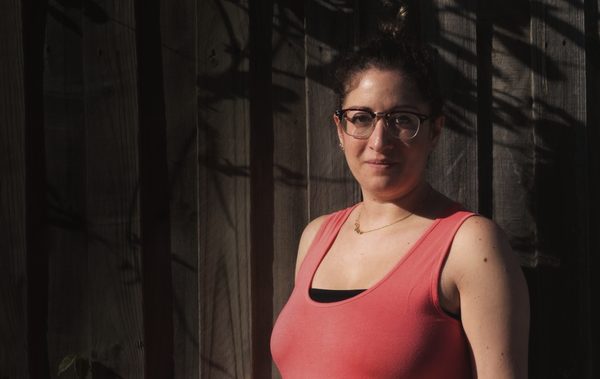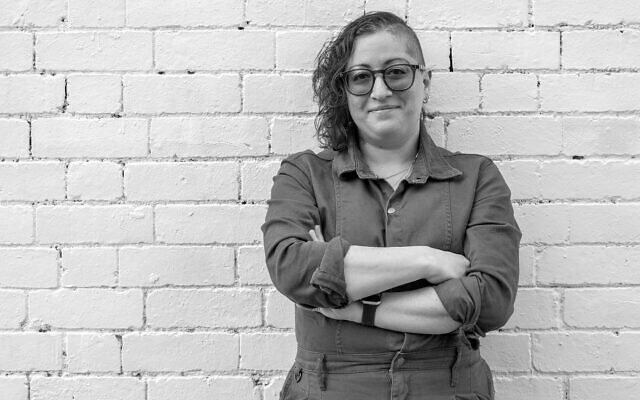Moving through the silence
Isabelle Oderberg is always asking 'why'. A journalist and now a novelist, Oderberg said writing her book Hard to Bear was a huge undertaking, but she is glad she did it.
Up to 150,000 Australian families are faced with a miscarriage every year. Every five minutes, someone experiences a miscarriage and studies show that up to one in four women who know they are pregnant will have a miscarriage before 20 weeks. That figure is likely much higher if you factor in early miscarriages that occur before a woman knows she is even pregnant.
According to a survey done in 2020 by Jean Hailes for Women’s Health, 60 per cent of respondents said they had not been given enough information about miscarriage to properly manage their loss.
These are harrowing facts. And they’re hard facts to read. Which is why Isabelle Oderberg decided she wanted to do something.

The journalist, whose first on-staff role was with this very masthead, said she is naturally inquisitive – as journalists must be – and when faced with her own journey through miscarriage and pregnancy found she needed to share. But, she explained, not until her personal journey was complete.
“I had one miscarriage followed by one living child, and then I had five miscarriages and then my second living child, so it was quite the journey,” she shared with The AJN. “Being a journalist and having somewhat of a public profile, I had spoken publicly about my losses as they’d happened. And being a journalist and having a lot of contacts in the industry, I was asked many, many times to write about it. I made the decision that I just didn’t want to write about it until my journey was over.” So, when her daughter was born, she started writing. Yet as she delved into the research, she realised it wasn’t just a feature.
“It wasn’t even a series,” she said. “It’s a big undertaking, but the more research I did, the more I realised that there are so many topics intersecting. I could have written three books.”
But despite the avalanche of information, she settled on one book, Hard to Bear – a clever play on words for a book that looks at childbearing and the emotional journey that accompanies it.
Rather than coming at the story from a place of emotion – which she said many people do – the investigative side of her wanted to share the stats and the facts. So, she made the decision to weave her personal experiences through the science.
“For me, it was really important that when I worked on the journalistic side, that I wasn’t doing it solely as a personal lived experience. I really wanted to do it as I would any other topic as a journalist and put my journalist hat on, and look at the data and the facts and really examine what is going wrong.”
The answer, Oderberg explained, is a lot, spanning from misogyny in medicine all the way through to the environment that we’re living in.
While many people said her idea to interlace her personal story throughout the science as vignettes wouldn’t work, from a journalistic perspective, Oderberg said, it felt right. And it definitely works, taking the reader on an emotionally charged journey while laying down the scientific and medical facts at the same time to ensure a deeper understanding of why.
And it’s not just ‘why’ when it comes to the medical aspect of miscarriage. It’s also the ‘why’ surrounding the silence and lack of change that she wanted to address.
Explaining that in one chapter she focuses on depictions of miscarriage in pop culture, Oderberg said that while it’s a good thing that people share, it never actually goes anywhere.
“Every time a celebrity has a miscarriage, they might write a column about it, they might run an Instagram post about it, and then there would be an outpouring of ‘miscarriage is a taboo topic. But it shouldn’t be a taboo topic. We must move forward’,” she said “But, that’s where it would end. The news cycle would move on and everyone would move on.”
But as Oderberg points out, at no stage was anyone asking why it is a taboo topic, where the silence comes from and whether it has always been that way.
“Where does the silence come from and why does it exist?” she asked, before she said she moved into looking at what we do know and what we don’t know.
“That’s when I made some discoveries about the lack of data and the lack of insight, and then from there, I investigated. And so, I asked, ‘How did we end up here? How do we fix it?’”
Importantly, Oderberg also addresses the fact that miscarriage is more than just a women’s issue. It affects men, non-binary, gender-diverse people as well, and of course, family members and friends, and the person’s wider circle as well.
Oderberg acknowledges that she has laid herself and her story bare through her book. But she hopes that it helps.
“My story is my story. It is what it is,” she said. “I’m hoping people think that as a piece of writing it’s good, but equally … I hope that it paints a picture to help people see a way forward and a way for change.”
Of course, she hopes that readers find it interesting and that it opens their eyes to things they may not be aware of – topics such as identity, reproductive justice, the Aboriginal experience and also her experience with Judaism through her miscarriages.
“I hope that those who read it understand the need for change,” she said.
And as for the chapter titles, which are all taken from songs, she said the idea started as a giggle but then seemed to work.
“I think there’s always room to smile even when you’re unpacking something sad,” she said, acknowledging that while the book deals with difficult themes, not every aspect is sad. There is also a lot of hope, and even a call to arms.
“I really wanted to have some moments of levity where you could breathe.”


comments